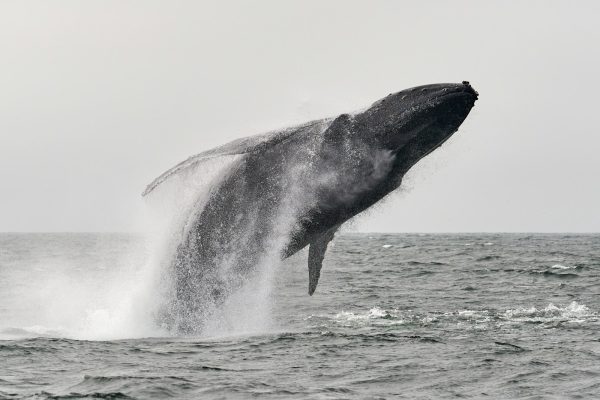Noise pollution can be generated by almost anything in the water, from commercial shipping boats and cargo ships to construction activities, and naval practices. Ocean noise pollution is defined by IFAW marine conservation as “…a type of pollution that negatively affects marine life.” Oceanic noise pollution happens most commonly in the Pacific Ocean, with the Pacific being one of the most traveled parts of the sea. Almost all underwater noise pollution is caused by human activities. According to Oceancare.org, “…over 90% of ocean noise pollution is directly attributable to human activities like shipping, seismic surveys, and military sonar.” Underwater noise Pollution can affect a large majority of marine life, causing stress, permanent hearing loss, or even some species resorting to leaving the area entirely, causing unnatural migration patterns that disrupt ecosystems. So, how does noise pollution in the ocean affect whales? Some of the more minor effects can be causing mental and emotional stress to different whale species, as well as shortening the distance in which they can communicate with each other, and affecting how they can detect prey and predators. Noise can also affect a whale’s behavior, and can alter movement patterns across the globe by chasing them out of important feeding and breeding grounds. As the International Fund for Animal Welfare states, “…whales are highly sensitive to sound. They rely on sound for many aspects of their lives, including navigation, communication, and finding food. However, increasing ocean noise from human activities like shipping and sonar can harm whales’ hearing and disrupt their behavior.” Noise pollution can not only disrupt a whale’s lifestyle and living practices, but can also hurt and cripple whales, due to their sensitivity to noise, and can cause them temporary or permanent hearing loss. One of the main reasons whales are so susceptible to noise is because sound travels very clearly through water, and when whales noise sensitivity is taken into consideration, loud noises can easily reach and harm whales. Sound can also affect the echolocation that most whales use to communicate with one another. This language, made up of different clicks and hums, helps whales communicate, find food, and find each other, and can be easily disrupted by sound across the surface, which can cause confusion and stress among whale pods and groups. Noise pollution is one of, if not the worst effects that human beings have had on the ocean, and should be taken seriously.
Related Stories:
https://www.fisheries.noaa.gov/feature-story/whales-world-sound
https://wwfwhales.org/ship-strikes-underwater-noise
TAKE ACTION:





